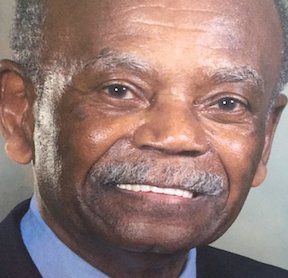 A new study sponsored by American Association of Colleges of Osteopathic Medicine (AACOM) finds that Black medical school students show a higher degree of empathy than their White peers. This, in turn, leads to a higher quality of service to patients, according to the study’s authors. Because empathy is positively correlated with medical school success and patient health, a more empathetic and more diverse healthcare workforce could lead to improved health outcomes for all patient populations, especially those from minority or underserved communities, according to the report.
A new study sponsored by American Association of Colleges of Osteopathic Medicine (AACOM) finds that Black medical school students show a higher degree of empathy than their White peers. This, in turn, leads to a higher quality of service to patients, according to the study’s authors. Because empathy is positively correlated with medical school success and patient health, a more empathetic and more diverse healthcare workforce could lead to improved health outcomes for all patient populations, especially those from minority or underserved communities, according to the report.
Researchers surveyed 3,616 first‐year, 2,764 second‐year, 2,413 third‐year, and 1,958 fourth‐year medical students to determine their levels of empathy. African American students scored the highest on the empathy index, while Asian Americans scored the lowest.
The authors state that higher empathy scores by African American medical students “may be explained by the notion of the ‘wounded healer effect,’ which describes that those who have experienced suffering can better understand the suffering of others by sharing common experiences. This effect suggests that those who have experienced discrimination and social injustice may be more sensitive to the suffering of others and develop more empathic understanding of others who are in need of help.”
Robert A. Cain, president and CEO of AACOM, states that “data show us that empathy is a strong predictor for a student’s clinical abilities. Using this evidence-based measure has the potential to improve healthcare outcomes while also serving as a meaningful step toward helping address some of the widespread, systemic inequities that unfairly burden prospective medical students from racial and ethnic minority populations.”
The authors argue that empathy index scores should be a part of a holistic admissions process for students applying to medical schools. “We should test medical students not only for academic knowledge but also for empathy,” says Mohammadreza Hojat, research professor in Sidney Kimmel Medical College at Thomas Jefferson University in Philadelphia and the lead author of the study. “Research has found a significant association among empathy score, clinical competence, and positive patient outcomes. Our assessment can not only help medical schools select the medical students most likely to become successful and caring clinicians but can also help close some of the troubling racial gaps that persist among medical education institutions.”
The full study, “Empathy as Related to Gender, Age, Race and Ethnicity, Academic Background and Career Interest: A Nationwide Study of Osteopathic Medical Students in the United States.” was published in the journal Medical Education. It may be accessed here.











If medical schools tried to select students for empathy, they would soon find it hard to weed out the fakes. It is very easy to learn how to present as an empathetic person.
This fits with the change on the MCAT to include the social science aspect of medicine. Kudos!